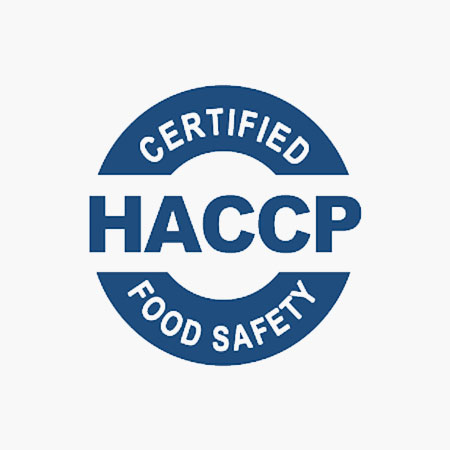HACCP Certificate
HACCP CERTIFICATE
HACCP stands for Hazard Analysis and Critical Control Point and it is mainly designed to identify and minimize hazards in food production. In other words, HACCP is a process in which food safety is addressed by the analysis and control of biological and physical hazards. It is a global recognized standard for food safety and provides high credibility to the potential clients.
HACCP define for the prevention of hazards not for the finished product inspection it helps to provide guideline to the organization on how to analysis the hazards and how to reduce or control them for human consumption. The main objective of HACCP is process and makes the product safe. The Preventive approach of HACCP is helps to improve the food management system as well as improve the quality management system.
Benefits of HACCP Certification
- Improve food quality and food safety management system.
- Improve the market value of the organization.
- Reduce risk in food production system.
- Develop team work among the employees.
- Time saving and cost saving process.
- It helps to ensure that you are compliant with the law.
- Commitment to produce safe and quality food for human consumption.
Process to get the HACCP Certification
- Application:- This is the first step to get the HACCP certification, the application covers some basic information of the company. The certification body must accept the application and needs to b record or maintain all the information on the HACCP database.
- Review of Application:- The application received shall be reviewed by the team to ensure that the compliance requirement have been fulfilled.
- Quote and Agreement:- After the review of documents we provide the price quotation to the client and performs the Gap Analysis to cover all the clauses and section of the quality standards and Gap Analysis is done to check the Gap between company planned things and achieved things.
- Documentation Review:- check the document of the organization to ensure that the documentation fulfilled the compliance requirement.
- Stage-1 Audit:- Evaluate your organizations documented procedure and policies against the compliance requirement.
- Review:- Review the documentation of your management system to ensure that the compliance requirement have been contented.
- Corrective action:- Corrective action is deal with the non conformity. It has taken when the non conformity occurs.
- Verification:- Verify the documentation of the organization as per the standard requirements.
- Stage-2 Audit:- In stage-2 audit, the auditor verifies that the organization implement according to its documentation and if the auditor of certification body identifies the non conformities then the auditor give the opportunity to correct the non conformities.
- Review:- Review the implementation process according to the organizations document.
- Corrective Action:- If there is any non conformity occurs then the corrective action has been taken.
- Verification:- Verify work instruction and implementation process are being followed by your employees.
- Granting of Certification:- The Certification Body will issue a certificate of compliance, which is valid for three years.
- Surveillance Audit:– Surveillance audit conduct to ensure that the organization meets the requirements of the management system. Surveillance audit must be performed in every six month or one year from the date of issued certificate.
- Re-Certification:- Re-certification is the process, which is done at the end of three years period.
- Review:- Review the documentation and implementation process of your management system to ensure that the compliance requirement have been contented.
- Corrective Action:- Recheck the non conformity, if any other problem occurs then CB give the opportunity to the organization to resolve the non conformity.
- Verification:- Compare the documentation of the organization with the compliance requirement

